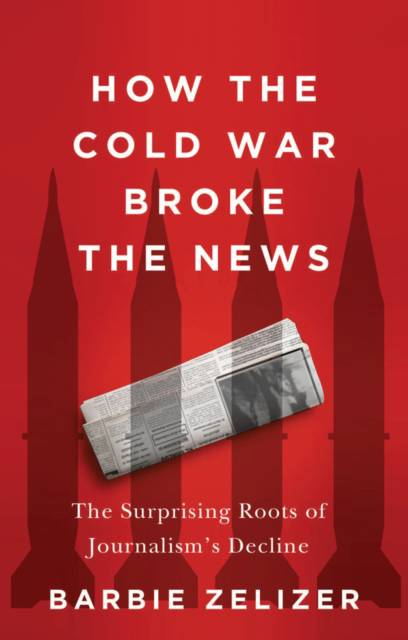
- Afhalen na 1 uur in een winkel met voorraad
- Gratis thuislevering in België vanaf € 30
- Ruim aanbod met 7 miljoen producten
- Afhalen na 1 uur in een winkel met voorraad
- Gratis thuislevering in België vanaf € 30
- Ruim aanbod met 7 miljoen producten
How the Cold War Broke the News
The Surprising Roots of Journalism's Decline
Barbie ZelizerOmschrijving
While much blame has been levelled at big tech, Barbie Zelizer traces the decline of American journalism to the Cold War. She makes the bold claim that Cold War-era practices are to blame for the state of journalism today, undermining a once trusted media environment. This groundbreaking book shows how journalism's current problems can be traced back to customs developed over half a century ago and demonstrates how they've continued to upend journalism, journalists and the news ever since.
We all need a news environment that works. This book tells us why it doesn't and offers a plan to make it better. If our news is better, so is our democracy. And, if our democracy is better, we may be too.
Specificaties
Betrokkenen
- Auteur(s):
- Uitgeverij:
Inhoud
- Aantal bladzijden:
- 224
- Taal:
- Engels
Eigenschappen
- Productcode (EAN):
- 9781509566372
- Verschijningsdatum:
- 24/11/2025
- Uitvoering:
- Hardcover
- Formaat:
- Genaaid
- Afmetingen:
- 298 mm x 234 mm
- Gewicht:
- 496 g

Alleen bij Standaard Boekhandel
Beoordelingen
We publiceren alleen reviews die voldoen aan de voorwaarden voor reviews. Bekijk onze voorwaarden voor reviews.







